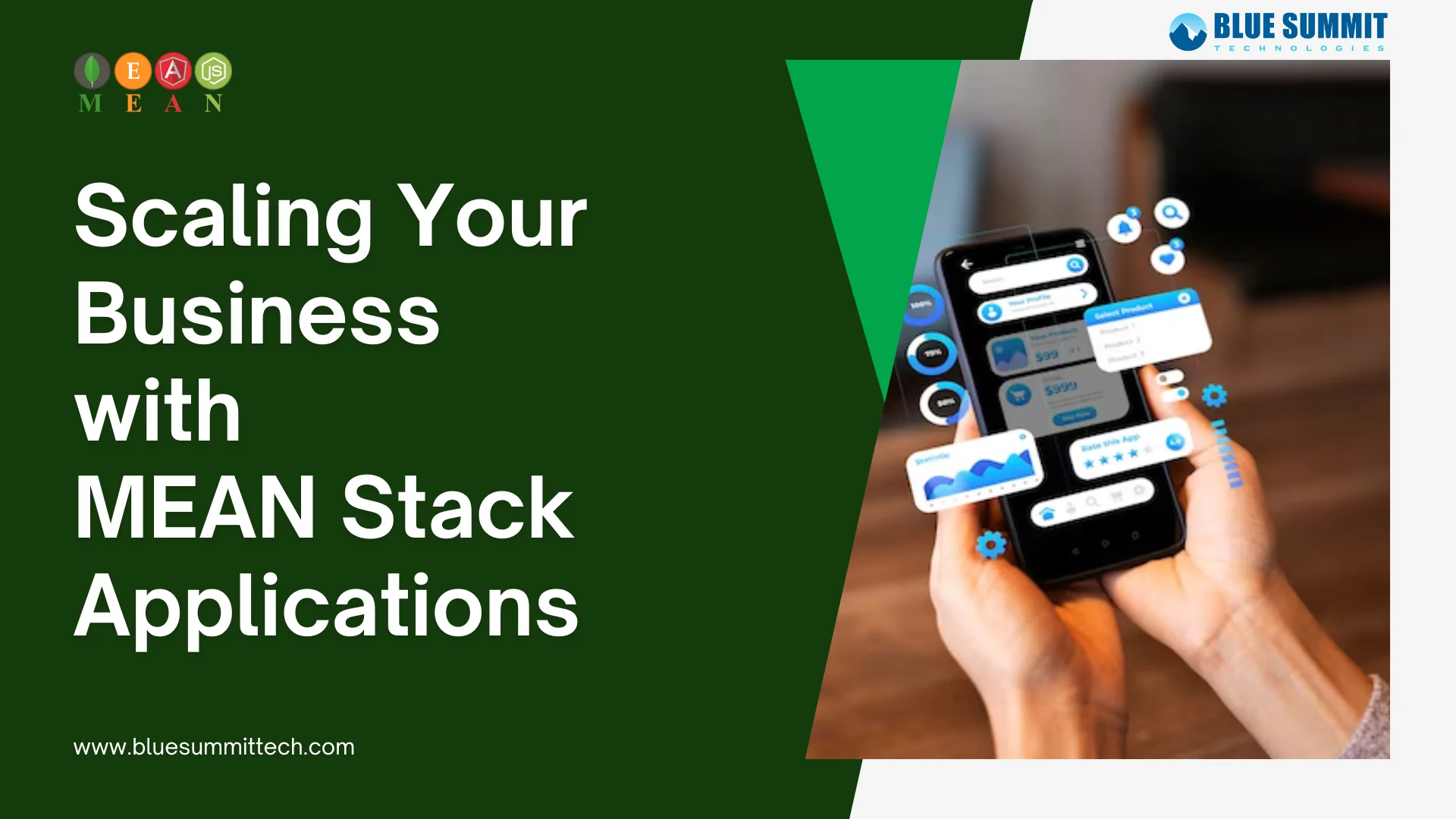
Posted on Friday, Feb 16th, 2024
Unleashing the Potential of MEAN Stack Application
The popularity of MEAN Stack application development stems from its versatility in creating fast and robust applications for both mobile and web platforms. Leveraging JavaScript throughout the entire development process enables the unique execution of server-side and client-side applications. The synergy of these top-notch technologies consistently yields impressive results in the realm of mean stack mobile app. The MEAN Stack, comprised of MongoDB, Express, Angular, and Node.js, is a JavaScript-based solution widely utilized in application development. MongoDB, an open-source database, employs a document-oriented data model, using collections of documents rather than traditional tables and rows. This architecture is scalable and adept at handling large volumes of data.
App development companies gravitate towards open-source stacks due to their inherent efficiency and structured workflow, with the MEAN stack standing out as a particularly favoured choice. The strategic inclusion of JavaScript within the MEAN stack presents a notable advantage, contributing to the seamless integration and enhancement of both web and app development processes. The open-source nature of the MEAN stack not only aligns with the ethos of collaborative development but also empowers developers with a versatile set of tools and frameworks. This inclusivity facilitates a more streamlined and agile development cycle, allowing companies to navigate complex projects with greater ease. The MEAN stack's emphasis on JavaScript as a universal language further promotes code reusability, reducing redundancy and fostering a more efficient development environment. In essence, the preference for open-source stacks, especially the MEAN stack, is driven by the desire for a robust, collaborative, and technologically advanced framework that optimizes the overall app development lifecycle.
Navigating the Structure of MEAN Stack App Development
AngularJS operates as a client-side language, harnessing the power of JavaScript to take the forefront in processing user requests as they are submitted. This initial phase sets the trajectory for the application's journey into the subsequent stages. Moving seamlessly into the second phase, Node.js steps in, functioning as a server-side language, playing a pivotal role in handling the ongoing request. As the mean stack application progresses, the third phase involves the utilization of ExpressJS, where MongoDB comes into action, diligently collecting all the necessary data required to fulfill the request. In this intricate dance of components, ExpressJS acts as the intermediary, forwarding the request and the accumulated data to Node.js. Finally, Node.js orchestrates the response, seamlessly delivering it back to AngularJS, completing the cohesive and synchronized flow of information within the MEAN Stack architecture. This intricate interplay of technologies exemplifies the efficiency and collaboration inherent in MEAN Stack's layered approach to handling user requests and data processing.Key Advantages of MEAN Stack Application Development
1.Enhanced Flexibility
A key advantage of MEAN stack application development technology lies in its remarkable flexibility. Following the app's construction, developers can conduct thorough testing using cloud platforms. The versatility of MEAN stack becomes evident throughout the entire application lifecycle, from development and testing to deployment, with minimal issues. Additionally, the freedom to incorporate extra information persists even after form fields have been added, with MongoDB offering comprehensive support and automated replication as an example.2.Streamlined Isomorphic Coding with MEAN Stack
MEAN stack not only facilitates the effortless transition of code across various frameworks but also aligns with the current trend of businesses seeking advanced technologies to elevate the creation of robust applications. Its isomorphic coding capabilities contribute to a more efficient development process, enabling developers to leverage a cohesive and adaptable approach in building applications that stand out in today's dynamic technological landscape.3.Cloud Accessibility
Mean stack application development involves utilizing public repositories and libraries, contributing to a reduction in overall development costs when deploying various technologies together. The cloud functionality feature of the MEAN Stack application enables cost savings, with MongoDB playing a key role in minimizing disk space expenses.4.Affordability
The cost of app development stands as a prominent obstacle, and the MEAN stack offers a more cost-effective solution compared to the LAMP stack. Unlike the LAMP stack, the MEAN stack requires a smaller number of developers. In the LAMP stack, proficiency in multiple technologies like MySQL, PHP, and JavaScript is necessary for developers. Consequently, the MEAN stack's cost-effectiveness positions it as the optimal choice for enterprise app development.5.Single Language App Development
In the MEAN stack, JavaScript serves as the exclusive language across all codes, employed in both server-side and client-side development. The use of a singular language throughout MEAN stack app development offers the additional benefit of enabling developers to comprehend and implement the language seamlessly from the ground up.6.Swift Performance and Reusability
Rapid speed stands as a crucial element for any app user experience. Node.js, with its non-blocking architecture, enhances reusability and accelerates app performance. Additionally, the adoption of AngularJS, leveraging an open-source JavaScript framework, enhances the overall ease of maintenance, testing, and reusability.Conclusion
In conclusion, the MEAN Stack stands out with its distinctive architecture, showcasing scalability and robust capabilities to efficiently manage substantial volumes of data. This unique operational approach positions it as a highly suitable choice for a myriad of app development organizations. Notably, the utilization of JavaScript as the primary language offers a distinctive advantage, eliminating the need for compilation before execution, unlike other languages within MEAN Stack applications. This characteristic streamlines the development process, allowing programmers to swiftly create concise scripts. The MEAN Stack's architecture, coupled with the flexibility and efficiency of JavaScript, underscores its appeal in the realm of enterprise mobile applications development.If you are seeking expertise in leveraging the MEAN stack application development needs, Contact us today to explore and benefit from our proficiency in crafting cutting-edge solutions for enterprise mobile applications.
Blue Summit has collaborated with OdiTek Solutions, a frontline custom software development company. It is trusted for its high service quality and delivery consistency. Visit our partner's page today and get your business streamlined.
REFER TO OTHER RELEVANT CONTENTS

Unleashing the Potential of MEAN Stack Application
The popularity of MEAN Stack application development stems from its versatility in creating fast and robust applications for both mobile and web platforms. Leveraging JavaScript throughout the entire development process enables the unique execution of server-side and client-side applications. The synergy of these top-notch technologies...
read more







